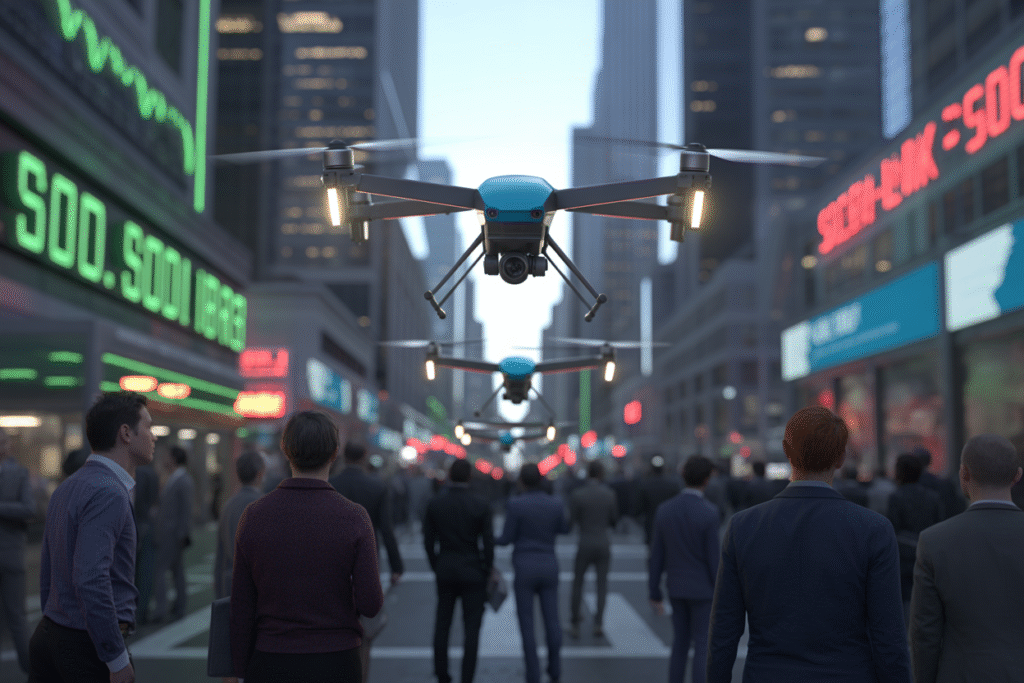What if AI doesn’t crash the market—but supercharges it into a dystopia where the rich get richer and the rest are watched by robots?
Picture a world where your dollar is worthless, your job vanished overnight, and a drone politely reminds you to stay indoors. That’s not sci-fi anymore; it’s the AI doomer thesis gaining traction on trading floors and Twitter feeds alike. Below, we unpack the viral thread that turned a market debate into a chilling forecast.
From Crash to Infinity: The New Doom Narrative
Most market prophets warn of a crash. Ansem flips the script—he sees an endless climb. In his viral thread, he argues AI turbocharges corporate margins so aggressively that asset prices rocket while wages crater. The catch? Only shareholders enjoy the ride. The rest of us watch our purchasing power evaporate like spilled water on hot asphalt. Why does this idea resonate? Because it marries two fears already simmering: AI job displacement and widening inequality. Suddenly the doomer isn’t screaming about red candles on a chart; they’re whispering about green candles burning everyone who isn’t holding them.
The Robotic Panopticon
Mass unemployment sounds bad enough, but Ansem’s kicker is the surveillance state needed to keep order. Imagine legions of security bots—cheap, tireless, and immune to empathy—patrolling streets and data streams. Every protest is pre-empted, every keystroke logged. Critics ask: who programs the watchers? History shows that when elites feel threatened, civil liberties are the first casualty. The chilling twist here is that AI doesn’t just replace factory workers; it replaces the social contract itself. If the state can outsource morality to code, dissent becomes a software bug.
Stakeholders at the Crossroads
Investors salivate at the thought of infinite returns. Labor unions see a jobs apocalypse. Ethicists scramble to draft guardrails before the code is etched in silicon. Each group reads the same forecast and walks away with a different moral. Venture capitalists ask which startups sell the best surveillance drones. Policy wonks draft universal basic income proposals. Meanwhile, everyday workers wonder whether retraining for prompt engineering is just polishing brass on the Titanic. The debate splits along a simple axis: is AI a tool we control, or a force that controls us?
What If Scenarios and Your Next Move
Scenario one: regulators clamp down early, taxing AI windfalls to fund social safety nets. Scenario two: laissez-faire acceleration hands the keys to trillion-dollar conglomerates. Scenario three: open-source AI democratizes the tech, but also the surveillance. Which feels most likely? Your answer shapes where you invest, vote, and educate your kids. The clock isn’t waiting; every quarterly earnings call nudges us closer to one of these futures. So ask yourself: are you building the panopticon, or the parachute?


